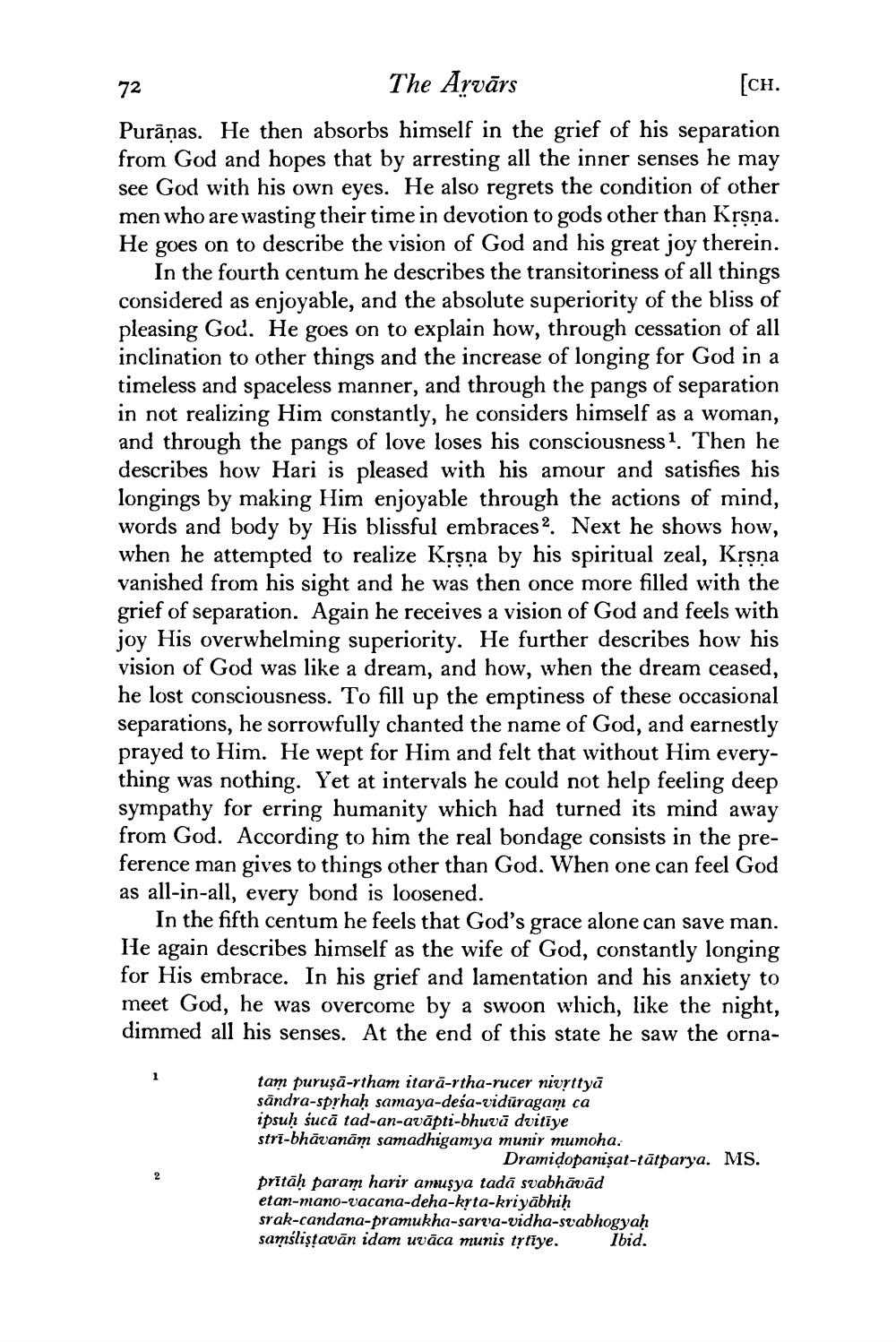________________
72
The Arvārs
[ch. Purāņas. He then absorbs himself in the grief of his separation from God and hopes that by arresting all the inner senses he may see God with his own eyes. He also regrets the condition of other men who are wasting their time in devotion to gods other than Krsna. He goes on to describe the vision of God and his great joy therein.
In the fourth centum he describes the transitoriness of all things considered as enjoyable, and the absolute superiority of the bliss of pleasing God. He goes on to explain how, through cessation of all inclination to other things and the increase of longing for God in a timeless and spaceless manner, and through the pangs of separation in not realizing Him constantly, he considers himself as a woman, and through the pangs of love loses his consciousness? Then he describes how Hari is pleased with his amour and satisfies his longings by making Him enjoyable through the actions of mind, words and body by His blissful embraces?. Next he shows how, when he attempted to realize Krşņa by his spiritual zeal, Krsna vanished from his sight and he was then once more filled with the grief of separation. Again he receives a vision of God and feels with joy His overwhelming superiority. He further describes how his vision of God was like a dream, and how, when the dream ceased, he lost consciousness. To fill up the emptiness of these occasional separations, he sorrowfully chanted the name of God, and earnestly prayed to Him. He wept for Him and felt that without Him everything was nothing. Yet at intervals he could not help feeling deep sympathy for erring humanity which had turned its mind away from God. According to him the real bondage consists in the preference man gives to things other than God. When one can feel God as all-in-all, every bond is loosened.
In the fifth centum he feels that God's grace alone can save man. He again describes himself as the wife of God, constantly longing for His embrace. In his grief and lamentation and his anxiety to meet God, he was overcome by a swoon which, like the night, dimmed all his senses. At the end of this state he saw the orna
tam puruşā-rtham itarā-rtha-rucer nivrityā sandra-sprhaḥ samaya-deśa-vidūragam ca ipsuḥ śucā tad-an-avāpti-bhuvā dvitiye stri-bhāsanām samadhigamya munir mumoha.
Dramidopanişat-tātparya. MS. prītāh param harir amuşya tadā svabhāvād etan-mano-vacana-deha-kyta-kri yābhih srak-candana-pramukha-sarva-vidha-svabhogyaḥ samśliştavān idam uvāca munis trtiye. Ibid.




